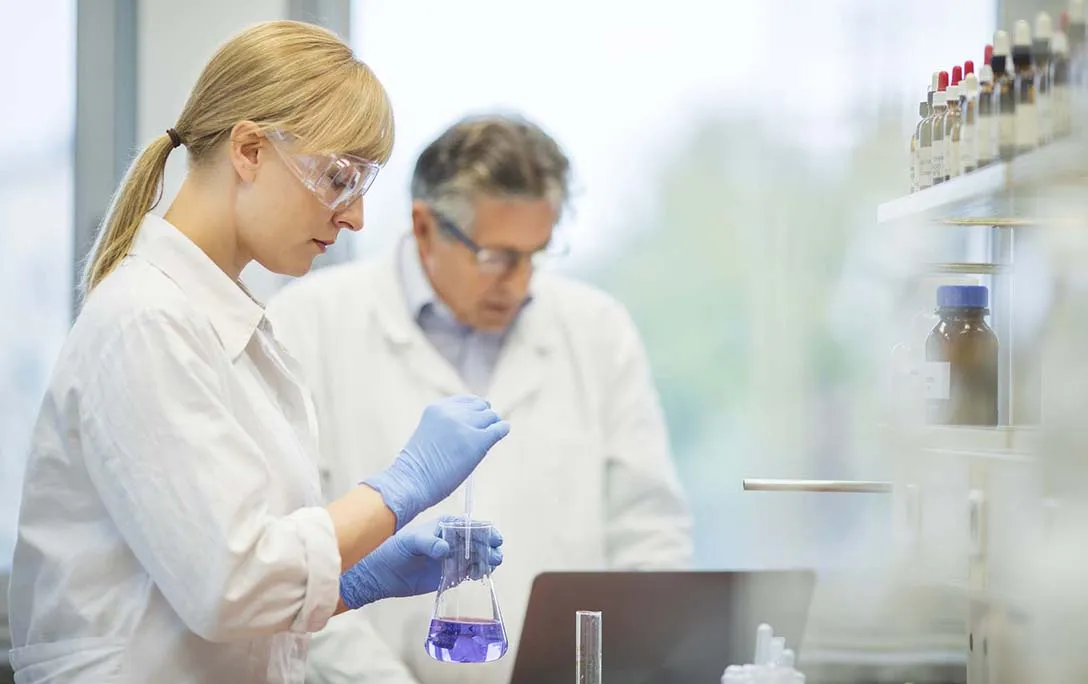
Photo: piranka/Getty Images
President Donald Trump has signed an executive order to speed domestic manufacturing of prescription drugs.
The order directs the Food and Drug Administration to reduce the amount of time it takes to approve domestic pharmaceutical manufacturing plants by eliminating "duplicative and unnecessary requirements."
Streamlining reviews and reducing regulatory barriers to construction will speed up production of pharmaceutical manufacturing facilities in the United States, according to the order.
The order builds on actions from Trump's first term to reshore production of essential medicines and cut down reliance on foreign producers.
Moving production back to the U.S. would require years and tens of billions of dollars in investment, according to The Wall Street Journal.
WHY THIS MATTERS
The order was released Monday as Trump announced plans to impose pharmaceutical tariffs within the next two weeks.
PhRMA's SVP of Public Affairs Alex Schriver said: "We share President Trump's goal of revitalizing American manufacturing. Today's executive order is a welcome step toward supporting the hundreds of billions of dollars in new U.S. investments recently announced by our companies. However, the ability to invest more in U.S. manufacturing also depends on avoiding policies that would undermine our world-leading innovation ecosystem. Imposing tariffs on medicines or adopting foreign price setting policies would result in less U.S. investment and weaken U.S. leadership at a time when we are facing growing competition from China."
What's needed to incentivize domestic production, according to pharmaceutical companies and other stakeholders, is tax reform.
Eli Lilly CEO David Ricks told the WSJ that making the 2017 tax reforms permanent, including bonus depreciation, is "essential" to investment.
Johnson & Johnson CEO Joaquin Duato attributed the company's recently announced $55 billion investment in the U.S. to the 2017 tax reform and said tax policy, not tariffs, is the most effective way to encourage manufacturing in the U.S. Tariffs, he warned, "can create disruptions in the supply chain, leading to shortages," according to the report.
THE LARGER TREND
In February, Eli Lilly announced plans to bolster its domestic medicine production across therapeutic areas by building four new pharmaceutical manufacturing sites in Indiana, Wisconsin and North Carolina. The company's $27 billion investment brings its total U.S. capital expansion commitments to more than $50 billion since 2020.
In April, Trump announced a 90-day pause on tariffs above a 10% baseline.
The UK-based GSK and AstraZeneca, the two largest patented drugs companies on the London stock exchange, were among companies that succeeded in lobbying for temporary relief for pharmaceuticals from Trump's 10% baseline tariff on almost all nations, according to The Times.
ON THE RECORD
"Today's Executive Order signals growing momentum behind a goal Premier has been spotlighting for years: strengthening the healthcare supply chain starts with prioritizing domestic manufacturing. Premier has consistently called for a comprehensive approach--including accelerating Food and Drug Administration (FDA) approvals for U.S.-based facilities that manufacture critical drugs and medical supplies," said Soumi Saha, Premier SVP of Government Affairs. "But this can't be a one-policy solution. As we told the Department of Commerce today, alongside faster approvals, we need targeted tax incentives, fair reimbursement and trusted trade partnerships for near-shoring."
Email the writer: SMorse@himss.org